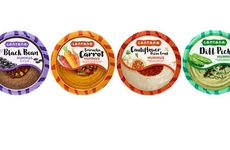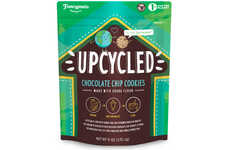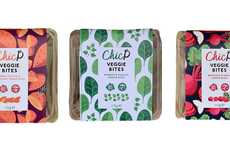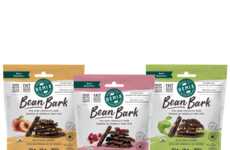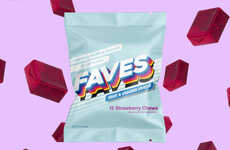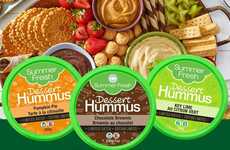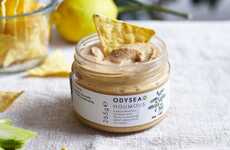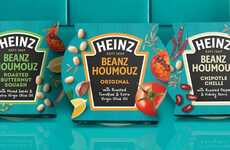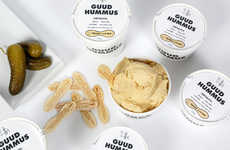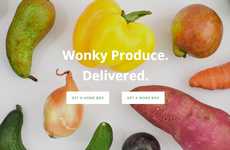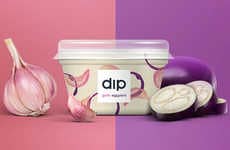
ChicP Reduces Food Waste by Using So-Called "Ugly" Produce
References: chicp & backit.tesco
Though the first thing that consumers will likely notice about ChicP hummus is its bright and unusual colors, perhaps the most important aspect of the hummus relates to the ingredients that bring those colors about. The flavored hummus products are made from a variety of different surplus fruits and vegetables in an effort to reduce the extreme food waste that plagues the produce industry.
Surplus produce, also known as "wonky" or "ugly" produce, are fruits and vegetables that have aesthetics flaws. While surplus produce is just as edible and delicious as the beautiful produce that makes it to grocery store shelves, it often gets thrown out because its appearance is perceived to be enough to drive consumers away. ChicP hummus products are made entirely with surplus produce, limiting this unnecessary waste.
Surplus produce, also known as "wonky" or "ugly" produce, are fruits and vegetables that have aesthetics flaws. While surplus produce is just as edible and delicious as the beautiful produce that makes it to grocery store shelves, it often gets thrown out because its appearance is perceived to be enough to drive consumers away. ChicP hummus products are made entirely with surplus produce, limiting this unnecessary waste.
Trend Themes
1. Colorful Hummus - The trend of using vibrant and unusual colors in hummus products helps to attract consumers and differentiate brands.
2. Surplus Produce - The trend of utilizing surplus or 'ugly' produce in food products reduces food waste and promotes sustainability.
3. Reducing Food Waste - The trend of finding innovative ways to repurpose and incorporate imperfect produce helps address the issue of food waste in the produce industry.
Industry Implications
1. Food Manufacturing - Food manufacturing companies can explore using surplus produce in their products to reduce food waste and create unique offerings.
2. Sustainable Agriculture - The sustainable agriculture industry can focus on developing methods to grow and distribute 'wonky' produce for use in various food products.
3. Eco-conscious Consumer Goods - Companies in the consumer goods industry can tap into the demand for sustainable and environmentally friendly products by incorporating surplus produce into their offerings.
5.9
Score
Popularity
Activity
Freshness

